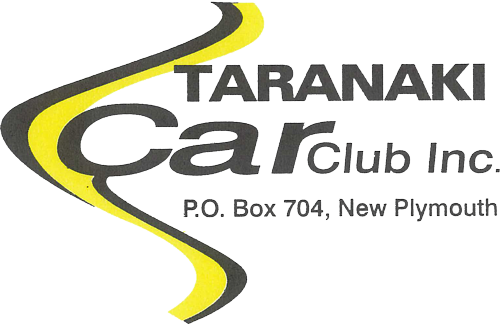Do I have to be a member of the Taranaki Car Club to compete?
No, you can participate in a maximum of two events in a one year period as a "Day Member" before it is required that you apply for a full membership. But, there is a cost to this, as at each event you must pay a TCC day member fee of $10.00 plus a Motorsport NZ Day Licence Fee of $35.00 – Temporary M Grade (fee current as at 1st October 2016) paid to the Motorsport NZ steward at the event plus the event entry fee. It would probably be cheaper to pay for an annual membership, which is currently $70.00 for a single person or $80.00 for a couple or $90 for a family. A "Family" is defined as parents plus dependent children. Currently, an annual Motorsport NZ Clubsport licence (M Grade) costs $77.00 (as at 1st October 2016).
How do I get a Motorsport NZ Licence?
Details can be found on the Motorsport NZ website. The minimum licence required to compete in Clubsport events is an "M Grade" licence.
What sort of vehicle can I enter in events?
Standard or modified road cars can enter as well as purpose built race cars. The safety criteria set down by Motorsport NZ must be met for all of these vehicles. The club runs a number of classes based on cubic capacity (cc) so you compete against vehicles of similar engine size. When modifications are made to your vehicle, they must meet Motorsport NZ engineering standards and should be balanced. For example, an increase in power should be balanced with improvements in handling and braking.
What is the basic equipment a driver requires?
A competitor needs to have:
A current Motorsport NZ licence (minimum of M Grade).
A current Taranaki Car Club membership or current membership with a Motorsport NZ affiliated club
A helmet meeting Motorsport NZ standards detailed in the latest Motorsport NZ manual – schedule A
Overalls/Underwear that meet Schedule A depending on the type of event being entered.
What are the classes run by the Taranaki Car Club?
The Taranaki Car Club runs 5 classes:
Class A : 0 - 1300 cc
Class B : 1301 - 1600 cc
Class C : 1601 - 3000 cc
Class D : 3001 + cc.
Class F : All 4WD.
Class S: Definition to be confirmed
Equivalence Factors: For engines, other than naturally aspirated four stroke, the following equivalence factors are to be used to determine the engine capacity, unless otherwise stated in the class regulations:• Forced Induction x 1.7
• Rotary Engine x 1.8
• Two stroke x 1.8
• Diesel Forced Induction Engines x 1.5
The nominal cylinder capacity will be multiplied by the applicable factor/s above and hence will pass the vehicle into the class corresponding to the fictive volume thus obtained.
What are the roll cage requirements for a vehicle?
All roll cages must meet the engineering standards of Motorsport NZ and must be approved by Motorsport NZ (known as "homologation"). Note: Some imported Japanese vehicles fitted with "factory" roll cages do NOT meet Motorsport NZ standards so please check before you buy such a vehicle. If you are purchasing a vehicle already racing in NZ and fitted with a roll cage, check that the relevant roll cage homologation documents are attached to the vehicles log book.
What kind of vehicles cannot enter Taranaki Car Club events?
At present (2003) Motorsport NZ clubsport regulations prohibits the entry of:
Quad bikes
Motor bikes
Speedway type vehicles
Karts
Convertible vehicles without approved roll protection. Vehicles that do not conform with schedules A or AA in the Motorsport NZ manual.
Is there prize money or prizes for events?
Certain events do attract sponsored prizes etc. The club also operates a points system for end-of-year trophies in each of the classes. There are also a number of other trophies awarded to non-competing or assisting members
If I don't want to compete, can I be an involved member of the Taranaki Car Club?
Of course! We regularly need help with flag marshals and crowd marshals at events, qualified first-aiders, assistance with event set-up and clear-up, timing officials (these people need to be computer literate!), scrutineers (people with mechanical background).

